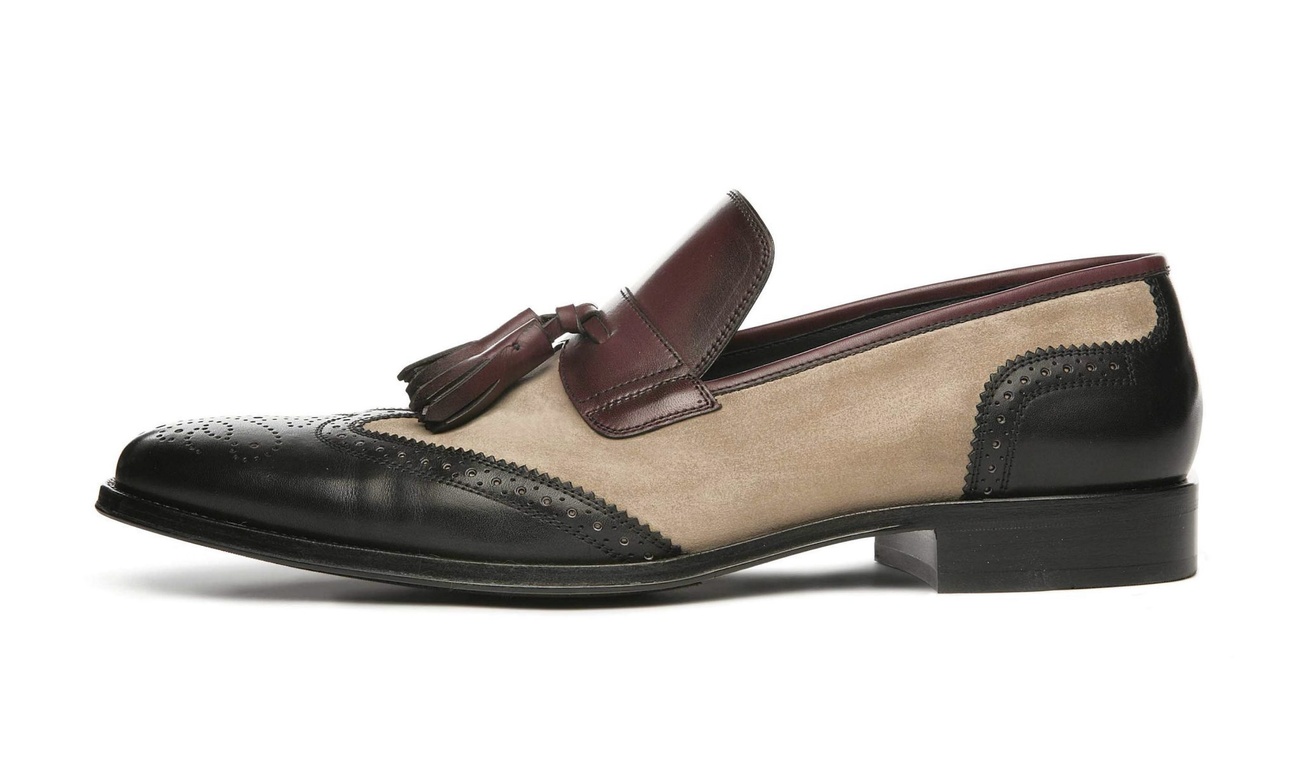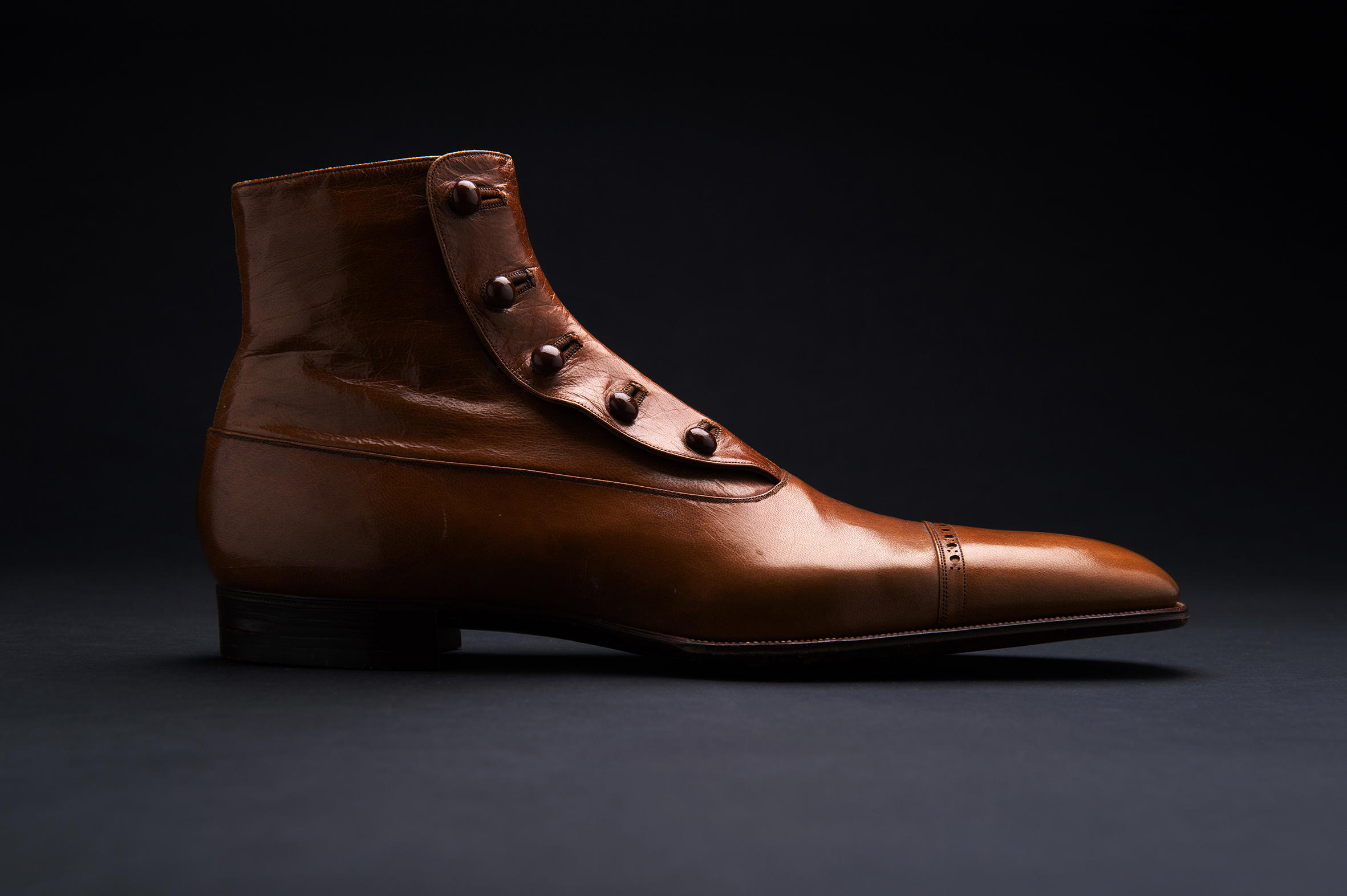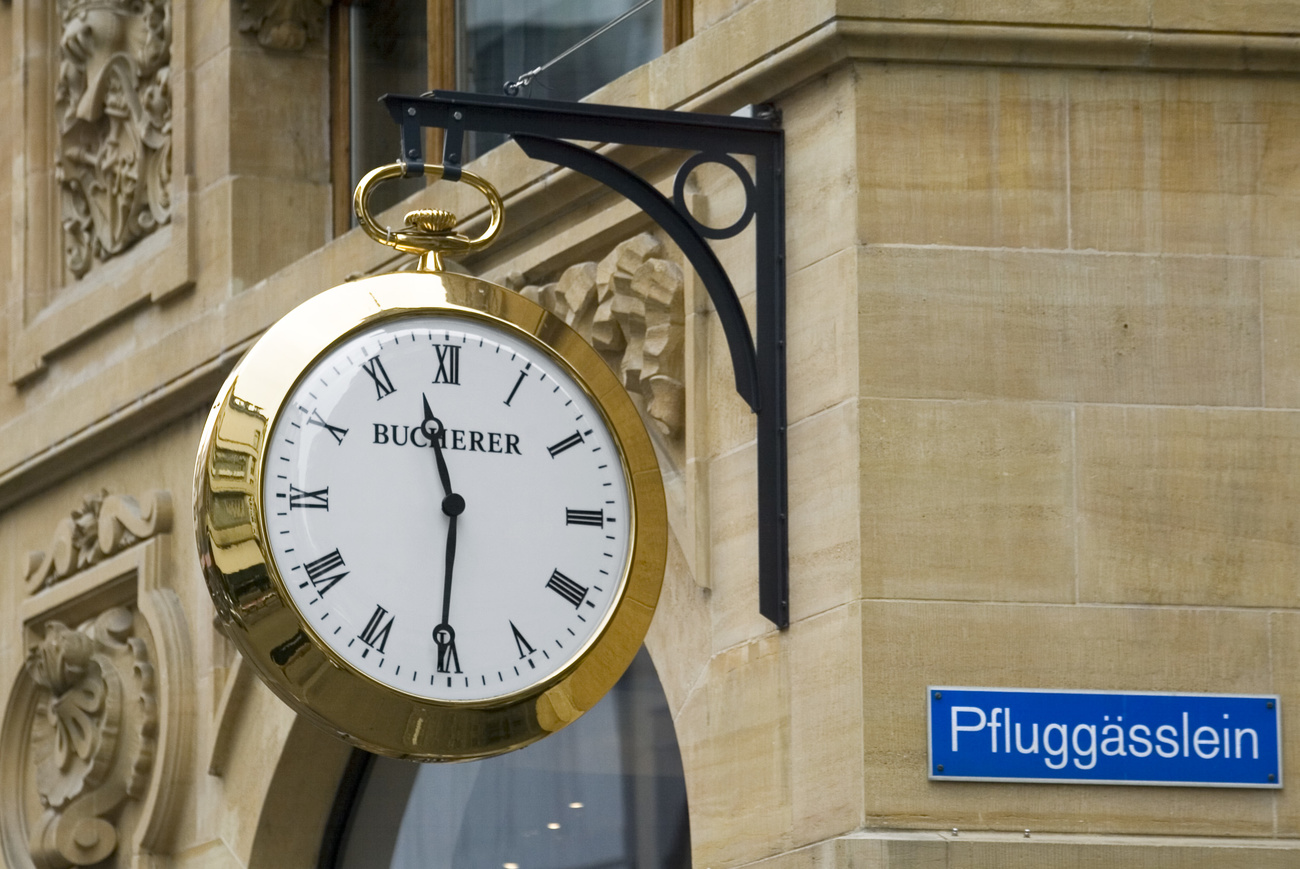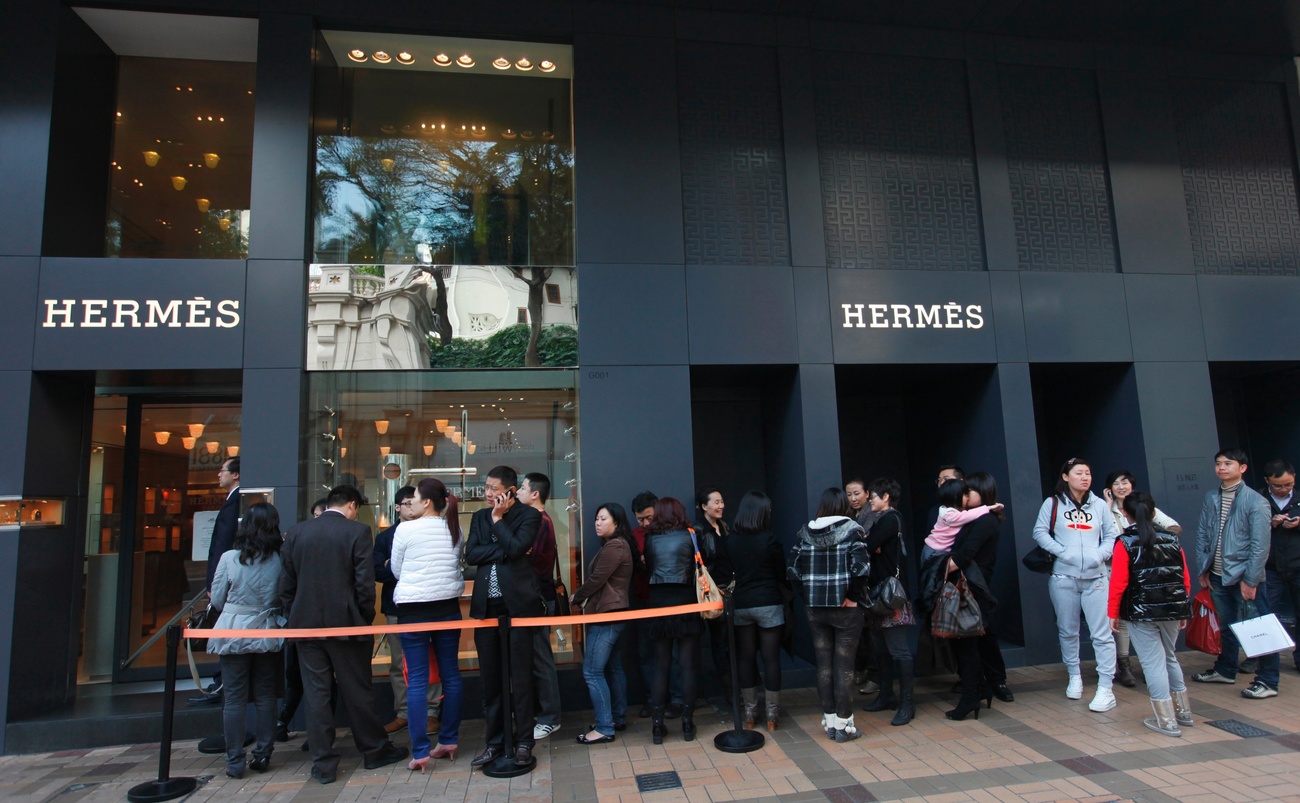The luxury industry looks to private equity for a reboot

The recent purchase of Swiss shoe brand Bally by American investment firm Regent is a symbol of the acquisition and consolidation trend in the luxury industry.
On Thursday, Regent announced that it had acquired the 173-year-old Swiss luxury shoe brand Bally. The fancy footwear firm has been owned by the Luxembourg-headquartered German conglomerate JAB Group since 2008. Regent already has a portfolio of high-end brands like Escada, La Senza and Club Monaco.
“Its legacy, built on over 170 years of timeless design and unparalleled quality, is a testament to refined Swiss elegance and an unwavering commitment to craftsmanship. We are honoured to be entrusted with shaping the next chapter of this remarkable story,” said Michael Reinstein, founder and chairman of Regent in a press releaseExternal link.
>>>Below is all you need to know about the history of Bally:

More
Bally keeps in step with the times
Bally almost ended up in Chinese hands. Chinese textile group Shandong Ruyi came close to acquiring a majority stake in 2018. However, the coronavirus pandemic put the brakes on that with the Chinese company unable to raise the funds needed and Bally’s store closures due to Covid restrictions made it a less attractive proposition.
Appointing Simone Bellotti from Gucci as design director last year helped stabilise the Bally ship: previous director and streetwear specialist Rhuigi Villasenor parted ways after merely one year on the job. It remains to be seen what Regent plans for the next chapter of the iconic Swiss brand.
SWI swissinfo.ch spoke to luxury industry analysts Karine Szegedi of Deloitte and Jean-Philippe Bertschy of Vontobel to understand what lies in the future for Bally and the luxury industry.
SWI swissinfo.ch: Is it unusual for investment firms to buy luxury companies?
Jean-Philippe Bertschy: There is nothing unusual about the acquisition. You have others investment funds doing the same thing like Qatar’s Mayhoola for example, that owns Balmain and Valentino.
Karine Szegedi: It is not unusual, as there are several examples in the industry. Successful luxury brands require significant investment to scale. There are several models: large luxury conglomerates, such as LVMH, Richemont or Kering; family/privately owned/controlled businesses such Audemars Piguet, Rolex, Chanel or Hermès or private equity owned brands such as Breitling or Bally.

More
Bucherer: a Swiss luxury brand ahead of its time
To own a luxury brand for sentiment or prestige would not be the main reason for private equity, which must make the business turnaround and profitable in a short time. This is different from family-owned brands, which have a more long-term view.
SWI: Will Bally’s Swiss DNA be affected by its acquisition by Regent?
J-P.B: For Regent the “Swissness” will be important. They would not want to change the brand’s identity. It would be like killing the proverbial golden goose because tradition, history and legacy are important to buyers of luxury goods. Luxury is a global business but it is an industry that respects traditions of the brand.
K.S: Not necessarily. Everything in luxury is about roots, history and tradition. Generally speaking, investors can help a luxury brand focus on and allocate resources to its core business and strengths rather than on too much diversification.
When private equity acquires a luxury brand, similar to other businesses they make sure they have people, processes, and investment in place to be successful. A luxury business needs to be understood, as its reality is different and cannot be managed like a low-margin volume-focused business for example.
SWI: How is the global luxury market changing?
J-P.B: The aspirational market of young people buying luxury sneakers and T-shirts with big logos is suffering. However, the ultra-rich are still buying. They are looking for “quiet luxury”. Some brands that do well in this space are Hermes, Brunello Cuccinelli and Loro Piana.
Bally has a Swiss understatement going for it but it is very hard for small brands to be compete. They have to appeal to millennials and GenZ who now make up the bulk of luxury buyers globally.
K.S: The luxury industry has shifted towards putting not only the product but also the end-consumer in the centre, in order to be closer to the buyers, and understand their needs, buying habits and interest in personalised luxury.
Despite the rising importance of e-commerce, luxury brands still need a bricks and mortar presence to shape the brand and be closer to their end-consumers. This means in the long run, less stores overall but more flagship stores. This requires considerable investments and a strong sense of ownership, and is one of the reasons behind consolidation and acquisitions recently.
Edited by Mark Livingston

In compliance with the JTI standards
More: SWI swissinfo.ch certified by the Journalism Trust Initiative









You can find an overview of ongoing debates with our journalists here . Please join us!
If you want to start a conversation about a topic raised in this article or want to report factual errors, email us at english@swissinfo.ch.